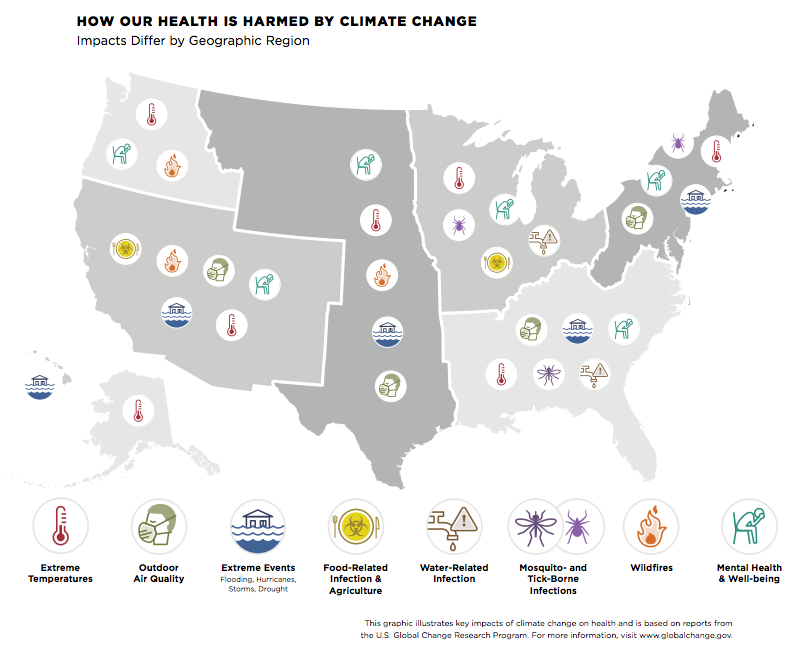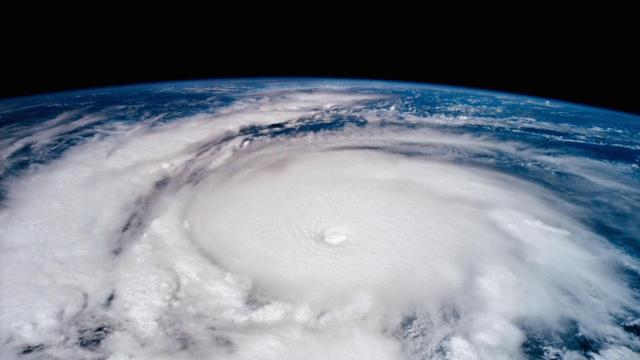In the debate over Earth and its changing climate, rhetoric frequently suggests that we are destroying the planet. The truth, though, is that this hunk of floating space rock we call home will live on long after humanity. The real losers of climate change will be us.
Hurricane Emilia in the Eastern Pacific Ocean in 1994, taken from the Columbia. Image: NASA
On Wednesday, more than half of America’s physicians banded together to make clear just how urgent of a threat to people climate change really is. Climate change, they said, is making people sick.
The newly formed group, dubbed the Medical Society Consortium on Climate & Health, is comprised of family doctors, paediatricians, obstetricians, allergists, geriatricians and internists that make up 11 of America’s leading medical societies. The group’s debut coincided with the release of a report detailing just how harmful to health the impacts of climate change can be.
The report outlines three primary types of health risks associated with climate change:
- Direct harms, like deaths due to violent weather patterns, increases in asthma and other lung diseases worsened by hot weather, cardiovascular problems caused by smoke from fires, poor air quality, and longer allergy seasons.
- The spread of diseases, like the Zika virus and Lyme, that travel through insects or contaminated food and water. Weather changes can lead to an increased geographic range for these problems.
- The mental health toll of dealing with the fallout from climate change as a society.
This push to raise awareness about the health risks of climate change comes as Trump’s administration has called into question the scientific consensus on global warming, and as he seeks to strip funding and authority from the agency tasked with addressing it.
“Measuring with precision human activity on the climate is something very challenging to do, and there’s tremendous disagreement about the degree of impact,” Scott Pruitt, the climate change sceptic installed as head of the Environmental Protection Agency, said on CNBC’s “Squawk Box” last week.
The bet this new consortium of doctors seems to be making is that Americans might be more up-in-arms about all this if they understood that the wacky weather patterns of our day have already had a direct impact on their health. The report cites a 2014 poll from Yale University showing that only one in four Americans can name even one way in which climate change can harm health.
“Most Americans understand that climate change is real and are concerned about it,” they write. “But most still see climate change as a faraway threat, in both time and place, and as something that threatens the future of polar bears but not necessarily people. The reality, however, is starkly different: climate change is already causing problems in communities in every region of our nation, and from a doctor’s perspective, it’s harming our health.”
Children, student athletes, pregnant women, the elderly, people with chronic illnesses and allergies, and the poor are more likely to feel the effects of climate change on their health, the report concludes.
The particular threats also vary by geographic region. In the dry climates of California and the Southwest, for example, water-related infections are less common but the risk of agricultural contamination and extreme events like flooding are worse than other parts of the nation.

Image: Medical Society Consortium on Climate & Health
The good news is that there may still be something we can do about it. The report suggests, as many climate scientists long have, that clean renewable energy, increased energy efficiency, and driving less could all help address the issue.
As proof, they cite compelling data. One January 2017 Abt Associates study, for example, found that in the Northeastern US states taking actions to reduce heat-trapping pollution through the Regional Greenhouse Gas Initiative, 300-830 early adult deaths were prevented, along with 8200-9900 asthma flare-ups and 180-220 hospital admissions. (If the health benefits aren’t persuasive enough, it also saved money.)
“We are sounding the alarm,” the report concludes, “that the ultimate danger of climate change is that it poses a danger to the health of every American now and in the future.”
